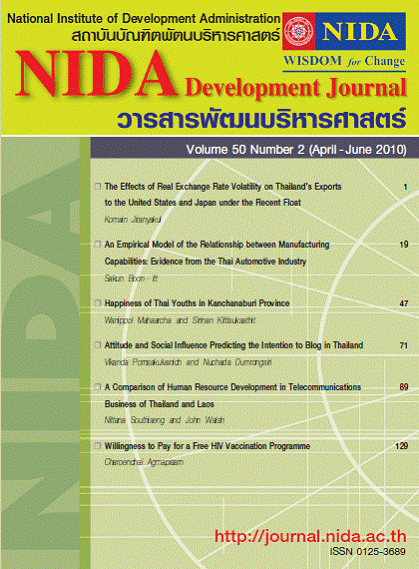An empirical model of the relationship between competitive capabilities:evidence from the Thai automotive industry
Keywords:
Manufacturing capability, Automotive industryAbstract
Regardless of the importance of manufacturing strategy and capability, the relationship between competitive capabilities has been recognized as an important element of operations strategy. However, there is still a lack of comprehension study and empirical evidence in justifying the precise relationships between different elements of manufacturing capability. Between the two suggested models from the literature, the cumulative (or sand-cone) model appears to be more sensible as opposed to the trade-off model. Therefore, the objectives of this research are to develop and test hypotheses based on the cumulative model of manufacturing capability relationships. Based on quantitative investigation of 151 firms from Thai automotive industry using structural equation models (SEM), we reveal interesting relationships especially in supporting the cumulative model. This study adds a new knowledge to the operations management by investigating the relationships and fills the gap in the literature on manufacturing capabilities, especially in Asian context. As a result, it takes the next step of trying to not only to examine but also to justify the relationships between manufacturing capabilities in the sand-cone model.





